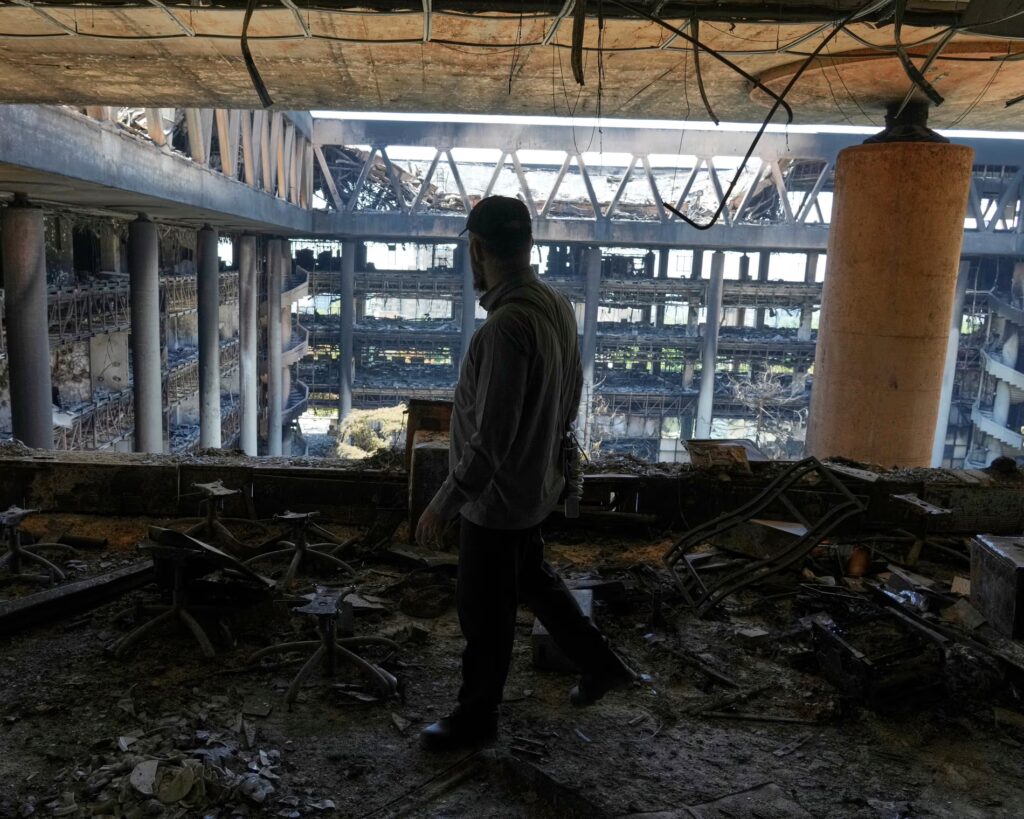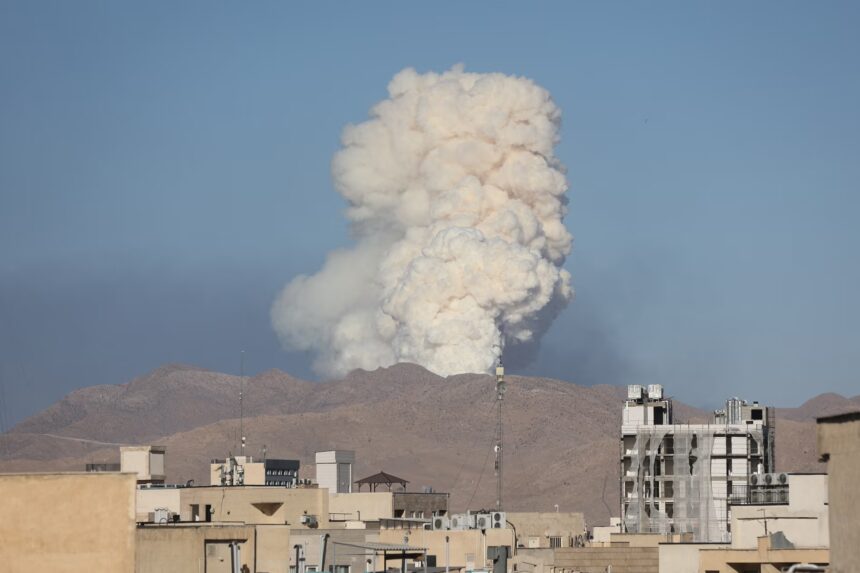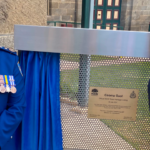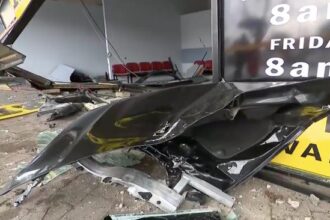Israel’s Defence Minister has confirmed he ordered a strategic escalation in military attacks on Iran, stating the objective is to “undermine the regime.” The declaration marks the first official admission that regime change is a goal of the escalating war, now entering its second week.
The announcement came as Iranian missiles struck deep into Israeli territory, including a direct hit on Soroka Hospital in Beersheba. While there were no major injuries due to emergency protocols, the strike caused extensive damage and drew immediate condemnation from Israeli officials.
Dozens of other missiles fell near Tel Aviv, wounding at least 40 people, some seriously. In retaliation, Israeli air forces bombed Iran’s heavy-water reactor near Arak and launched renewed attacks on the Natanz nuclear site. The conflict has intensified as civilian infrastructure becomes entangled in military operations.
Defence Minister Israel Katz said: “The Prime Minister and I have instructed the IDF to increase the intensity of attacks against strategic targets in Iran… and undermine the ayatollahs’ regime.” His words mark a shift from targeting nuclear infrastructure to broader attacks on symbolic institutions of Iranian governance.


Katz described some of the new targets, including the state broadcaster, as “symbols of the regime.” This broadening of the scope underscores Israel’s evolving military strategy and deepening resolve to shift the balance of power in the Middle East.
The Iranian strike on Soroka hospital sparked international concern, with Defence Minister Katz calling it “a war crime of the most serious kind.” Hospital staff and patients, already in protected areas, avoided loss of life—but the emotional shock and property devastation were immense.
The Iranian government maintains that its nuclear program is for peaceful purposes, but international concerns persist. Israel’s latest attack on Iran’s heavy-water facility has drawn global attention. State-run Iranian media confirmed there was no radiation risk, as evacuations had already been completed.
As the war escalates, U.S. President Donald Trump is weighing deeper involvement, bolstering military presence in the region. Although he initially distanced himself, domestic and global pressure may soon force direct action. Iran’s Supreme Leader, Ayatollah Khamenei, warned of “irreparable damage” if the U.S. moves beyond passive support.

Israel’s second strike on the Natanz nuclear complex comes amid growing fear of regional destabilisation. Though Natanz has been targeted in past operations, its significance remains high due to its capabilities in enriching uranium near weapons-grade levels.
Iran’s missile barrage damaged civilian infrastructure across Israel, including Ramat Gan near Tel Aviv. A missile struck near the diamond exchange, destroying buildings and injuring multiple people. “It was like an atom bomb. An earthquake,” said local resident Asher Adiv.
Adiv, whose mother was an Iranian Jew, spoke of solidarity between the Israeli people and Iranian citizens. “The Iranian people should make a revolution, and kick out the ayatollahs… We are not just fighting for Israel. We are fighting for the whole world.”
His wife, Anny, urged U.S. support. “Tell Donald Trump to be beside us. He has to bomb them to finish the nuclear sites,” she said. The couple’s sentiment echoed widely among bystanders, who expressed confidence in Israel’s resilience amid growing civilian hardship.
Many countries are now arranging evacuations for their nationals in both Israel and Iran. Airports are overwhelmed as tens of thousands of Israelis stranded abroad begin returning home. Israel’s main international airport remains closed due to the ongoing attacks.
As the violence continues, the international community faces mounting pressure to intervene diplomatically. But with nuclear sites under siege and civilians caught in the crossfire, the road to peace appears increasingly uncertain.






